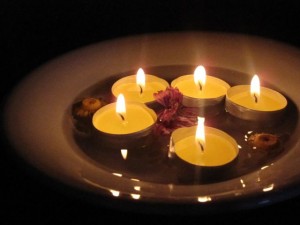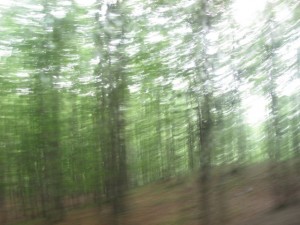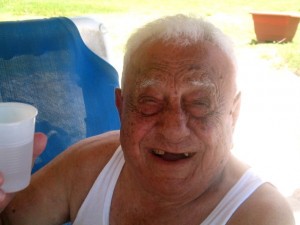Posts Tagged ‘memories’
Connections? Priceless
In today’s opening essay for Q, the CBC radio show, host Jian Ghomeshi remembered Roger Ebert and the interview he conducted with the famed film critic a year ago.
Jian described how concerned he’d felt about his ability to connect with Mr. Ebert in the studio given the latter’s health challenges. “I needn’t have,” he said.
His words this morning paid tribute to the man, but they also served as a testament to the power of connection.
Listening to Jian made me reflect on my own feelings now that the spring term at SFU is drawing to a close. I’m not completely disentangled from my teaching obligations yet: I’m expecting final essays from my students next week.
But there are no further lectures for the course and no remaining tutorials. And that makes me wistful.
Why?
Because the end of the term represents a loss. The connections I’ve forged with my students after thirteen weeks of working together are now tenuous if not severed. I may have gained back time for my own work and my other commitments, but I am no longer a part of these particular journeys, the unfolding lives of these particular individuals.
Since my first stint as a TA, I’ve connected with approximately 120 students. 120 students from a variety of faculties and departments, given the way course requirements are structured at SFU, and 120 students who represent the gamut of undergraduate experience.
Aside from the occasional encounter on campus, I don’t know where they are now or what they are doing or how they are faring.
When I walk around the Burnaby campus now, a movie reel of sorts plays out in my mind: momentary flashes of memories, frames filled with faces, snippets of conversations, disappointments, and noted accomplishments.
The characters of my movies are students: those with strong opinions, those with a sense of humour, those who struggled, those who exceeded their own expectations, and those who were observers yet offered so much when they found the courage to voice their opinions.
The plot revolves around classic texts of Western civilization and delving for insights into the human condition, then and now. Work on writing, developing critical thinking skills, and trying my best to impart the importance of questioning.
A few students have reconnected via LinkedIn and others lurk on Twitter, but these electronic tentacles, in my mind, pale in comparison to the strength of the collective experience of an in-person weekly seminar or a personal visit during office hours.
My experience at SFU has strengthened my belief that the most critical factor in teaching and learning is the personal aspect. Technology may carry us forward into a brave new world where the nature of human interaction is fundamentally altered forever, and learning is transformed into something which I am not yet able to imagine, but for now it remains as it always has been.
The value of educational experiences rests predominantly, as it does for radio interviews, on human connections.
Female Bullying: The Cruelty of Exclusion
“Even bullies wear pink shirts on pink-shirt day.”
I heard this sentiment expressed more than once this past week. And to a certain extent it’s true. It’s a day when we offer camouflage to those who don’t realize they are the bullies we’re talking about.
Even so, the day does shine a light on the topic. It inspires people to share their own experiences as Shane Koyczan has done this year with his spoken word poem (link below).
As my friend Bob has done on his blog.
And as I want to do here because sharing our stories helps to build awareness.
I won’t address overt bullying such as when the boys in high school taunted me with choruses of “areema, areema, areema” from the back of the class or a girl slapped me or another taunted me about the strap on my training bra.
I want to talk about the peculiarly female form of bullying which isn’t dealt with by initiatives such as pink-shirt day.
Why?
Because the majority of female bullying is insidious.
Women tend to organize in circles.* Girls refused entry into the circle or who have been dismissed from it are the ones, I would argue, who are often subject to bullying because they are isolated and excluded.
I was a new kid in Grade 8, my family having just moved to West Vancouver. Fortunately a strong friendship helped me survive the transition, but the friendship dissolved the following year and it was difficult to replace.
My memory of Grade 9 is one of tears: tears shed because I was always on the edge of the group. Sitting in the hall at lunch, for example, listening while the other girls made plans for the weekend and not being invited to participate.
Tears shed because I was alone.
In my second year at UBC, I joined a sorority. In hindsight, it may not have been the best fit for me. If being on the outside of the circle in high school is difficult, falling out of favour in a group of 40 or so is excruciating.
I remember carpooling with two of my sorority “sisters” although as I reflect on it today, I realize I must have done all the driving because I was the one with the car. On the way home one afternoon, we hatched a plan to get together later to watch a movie. I dropped them off and went home to get ready, sitting by the phone waiting for the call (yes, that’s how it was done in those days!). The call did come, but to cancel. Secrets are very hard to keep though and I found out later that the get-together had gone ahead as planned, but without me.
Trying to understand, I asked. The explanation? “Reema, when you ask someone how they are, you really mean it.” In other words, being with me was work. My interaction with others was based on more than a flippant line or light-hearted gossip or trivial talk.
I still am work and when I ask someone how they are, I still really mean it. My interest is in the whole person and their truth, not simply the mask presented to the world. I am a little too earnest to fit in easily and that has often put me, continues to put me, outside the circle.
But with the passage of time and the wisdom of experience, comes strength and acceptance, and a circle of true friends including that friend from Grade 8 whose friendship was reclaimed and a few from those sorority days.
It does get better, but it is never forgotten and it is not always easier.
Bullying requires constant and persistent vigilance, and that’s why it’ll never be eradicated simply by wearing pink one day a year.
*From the work of Deborah Tannen which I was introduced to in a writing workshop many years ago.
Three videos which touch the heart and mend the soul:
“It Gets Better” (Broadway sings for the Trevor Project)
It Gets Better – Royal Canadian Mounted Police (BC)
An informative interview on the topic of bullying:
Author Emily Bazelon on CBC’s Day 6
Friends, Movies, and Memories
I had lunch with friends recently. Our conversation turned to favourite movies and I mentioned Truly, Madly, Deeply starring Juliet Stevenson and Alan Rickman. I also said how tough it was to track down a copy to play at home. The DVD had been discontinued and anything I’d found online was expensive.
Later that day I received an email from my friend: she’d ordered a copy of the movie for me. She didn’t realize it at the time, but the copy she’d tracked down was reasonably priced because it was a VHS tape. Not a problem: I have a working VCR at home.
I first saw Truly, Madly, Deeply when I lived in Toronto (1986-1992). There were any number of cinemas within walking distance of where I lived and a quick subway ride could get me to movie theatres on St. Clair or further north along the Yonge Street corridor.
I went to the movies often during this time and often alone.
Why?

Because when you live on your own, you learn to take yourself out. You can’t always count on having someone there to go with you, whether to a movie or for dinner or to special events. It’s tough to do, especially as a woman, but it’s key to surviving the isolation and loneliness of city life.
I remember enjoying many new releases in Toronto including Disney’s Beauty and the Beast. I was much older than the target demographic but was enticed by the reviews which described Belle as a new-style Disney heroine. She reads!
I saw Thelma and Louise in Toronto although I’m not sure the stranger who sat beside me understood the film given how his hand drifted over during the screening to fondle my thigh.
There were also movies I enjoyed with friends or with visiting family members. Dirty Dancing, Dances with Wolves, Terminator 2 (at the time, the most expensive movie ever made). I also remember going to see Silence of the Lambs (it made me nauseous) and The Princess Bride which had me laughing as much as I’d ever laughed.
Those memories may not be as vivid as they once were, but the stories, the images, the feelings, the impact of that time and those movies have stayed with me.
So as I anticipate the click of the VHS tape in the machine and the whirl of the spools as the tape begins to play, I’m also a little nervous. Will the movie live up to my remembrance of it? Will it move me in the same way as before? Will I go through piles of tissues the way I did when I first saw it?
At the end of the day, it doesn’t matter. I’ll enjoy the film, but the memory I’ll latch on to is that of a friend who went out of her way to help me recapture the magic of a darkened theatre and a brilliantly acted story of love, grief, healing, and life.
Thank you A.E.!
An excerpt from La Muerta (The Dead Woman), a poem by Pablo Neruda, which is recited in Truly, Madly, Deeply
No, forgive me.
If you no longer live,
if you, beloved, my love,
if you have died,
all the leaves will fall in my breast,
it will rain on my soul night and day,
the snow will burn my heart,
I shall walk with frost and fire and death and snow,
my feet will want to walk to where you are sleeping, but
I shall stay alive …
The Speed of Life
Math was not my favourite subject in high school, but I was proficient with the material presented. Decades later a modicum of what I learned is hardwired for my general use, but don’t ask me to explain an advanced concept and please save me from anything that has to do with calculating probabilities.
One formula that has stuck with me is d = rt or distance (d) equals the rate of travel (r) multiplied by time (t). And while familiarity with the relationship between these three factors comes in handy for planning, lately I’ve been thinking about the formula’s applicability in a different way.
Why?
Because I think the distance we travel daily contributes to the feeling we have that life is hurtling by us at breakneck speeds.
On days when I teach, for example, the 25 kilometre journey to SFU’s Burnaby campus takes me about thirty minutes each way if traffic is flowing smoothly. That’s nothing compared to those who may commute in to Vancouver from the Fraser Valley or drive down each day from Squamish or ferry over from the Sunshine Coast.
Compare that to the daily distance my Grandmothers would have travelled as young women, my paternal Grandmother in rural Lebanon and my maternal Grandmother in rural Jamaica. Until they married, their circle of travel likely extended no further than 10 kilometres, by foot, over the course of a day.
We have extended the distances we travel dramatically and not just for essentials. How many consider a drive to the Bellis Fair Mall, a three-hour roundtrip from the Lower Mainland depending on border waits, a simple excursion? Or consider how cavalier we have become about booking vacations requiring hours if not days of travel?
So if the distances we traverse have become more extensive, and if you accept that our time is fixed (not just in the sense of 24 hours a day, but in the finite sense of our mortality), it would seem that the factor which has changed the most with regard to our day-to-day is r, the rate.
And that may help explain why it feels like we are living at a faster and faster rate, one which increases with each passing year.
Is it any surprise then, as we’re preparing to celebrate the arrival of the new year, that many of us wonder what happened to the old one? How is it that we are celebrating graduations when it seems like just yesterday we were celebrating the births of the children in our families?
And nothing drives home the finite nature of time as much as the loss of those around us, whether people we’ve known and loved, young and old, or strangers from far away whose images fill the news.
That’s why it’s vital to recognize, sooner rather than later, in our instantaneous 140-character world, that we do not have another now.
And unless we take control of the speed of our life, it will pass by in a blur.
Remembering
My maternal grandfather, Mr. Mike as he was known, passed away in 2008 at the age of 104. Yesterday, October 9th, would have been his birthday. These are the words I spoke at his funeral four years ago.
“As you can see, I’ve written a book. But, before I start, let me say one thing. Looking around at this incredible gathering, the one person I know who’s having the time of his life, wherever he may be, is Michael Khaleel George Azan.
My name is Reema and I’m Mr. Mike’s granddaughter. My mother is Y., Miss U as she’s known in Spaldings.
I hope, as C. and I speak, you’ll hear the echo of the many voices speaking with us today, the voices of all Mr. Mike’s grandchildren and great-grandchildren.
When I asked my 7-year old son what he remembers most about Grandpa Mike, he answered: “He was very old and he sat a lot.”
I know how lucky my son is to have known his great-grandfather well enough to have memories of him.
But I’m sad he didn’t know Mr. Mike the way my cousins and I did.
Mr. Mike, until recently, was not a guy who sat a lot: he loved to move, he was loud, he was vivacious, passionate, strong, loud, he loved to travel, he was loving, full of energy, brimming with confidence, and … loud.
Grandpa Mike was a force of nature and it seems only fitting that we remember him today, September 10th, which I’ve read is the peak day of hurricane season.
He was a man of the earth. Born in Lebanon and living in poverty, he once told me he “walked four year barefooted.” His footprints are embedded in the very soil of our world: in Europe as he made his way to his new island home in 1922, in Jamaica – his home for 86 years, or in Canada and the United States where he visited family.
He was a man who enjoyed the bounty of the earth. If there ever was a man who gloried in the pleasure of food – and was deeply thankful for every mouthful – it was Mr. Mike.
In the morning, he would have a glass of water, a cup of hot strong coffee and two bananas. And that was before breakfast. My cousin D. remembers him in the kitchen, in his white undershirt, mixing Fatoosh, a Lebanese salad, in a huge aluminum bowl to feed members of the family who would gather around the tables set end to end to accommodate everyone.
On Friday nights, Uncle V.’s family would travel up to Spaldings for dinner. V.’s son remembers how Grandpa Mike made him feel special by making sure that even as a child he was included in the conversation.
It was that ability to make people feel special that made Grandpa Mike such an expert salesman, or as my cousin G. says, “he could sell water to a fish in a pond”.
No one who knew Mr. Mike could deny that he had fire in him. You know that if there was music, it wouldn’t be long before he’d get up to dance.
At his 100th birthday celebration, my sister remembers how his eyes twinkled as he watched a belly dancer perform. When he tried to join her, his children urged him to remain seated. He shrugged them off, got up to dance, twirling his white handkerchief around and around.
Mr. Mike loved his family fiercely, and he had a temper, one that chased many a customer out of his store.
I remember visiting Jamaica as a young girl of 11 and being utterly fascinated by the store. I remember it as a dim cavern of treasures: men’s fabrics, women’s fabrics, cotton panties, housewares, lace, thread, mixing bowls, brooms, ribbon, and buttons.
My favourite part of the store was the mezzanine where there were boxes and boxes of shoes, some easily twenty years old.
I remember the magic of the place: it was a dragon’s den and Mr. Mike was the fire-breathing guardian. He used his voice to bellow his disapproval, and my cousin D. remembers that he also used brooms, pots and pans, and even shoes which he threw down the street after the people running away.
Mr. Mike was so physically strong. My cousin L. remembers his “hugs were so tight you thought he broke a rib and the kisses that were so hard, I swore his beard cut my face open.”
He was also a man of beliefs. The essence of his philosophy, as described by my cousin S., was his love of God, his love of family, and his love of friends.
I believe that part of Mr. Mike’s longevity was his innate curiosity about the world and an appreciation for all the things in it. This is a man who had no formal learning, but he was always asking questions.
And he never seemed to forget a thing. I once asked him to tell me about Spaldings when he first arrived. According to the notes I made, here’s some of what he told me: “Eggs was 6 pence a dozen, meat was 6 pence a pound. A big loaf of bread was 9 pence. 9 pence was money.”
Earth. Fire. Air. These, according to ancient philosophers, are considered the principal elements of nature along with water. I like to think of life as a river. You’ve got to jump in and go with the flow.
Most of us are tempted to reach out and grab a branch or a log to get to safety. Not Mr. Mike.
I believe he was fully immersed in the river of life and trusted the current to carry him.
The word hero is thrown around a lot in our world. But sometimes I think the most extraordinary people amongst us, the true heroes, are those like Mr. Mike, who live in contentment, who take joy in their family and friends, and who work on behalf of their community. Who ride the ups and downs of life, who take the good with the bad, and who smile every day.
Mr. Mike used his voice to share his stories with all of us. Sadly, we’ve lost that voice. He didn’t have the ability to capture those stories with words on a page, but he had pictures. He was obsessive about pictures. I think that’s because they were his diary, his journal, his testament. He could look at them and say: “I’m a good man. I’ve lived a good life. These are the ones I love and this is my life’s work.”
We are his life’s work: his children, his grandchildren, his great-grandchildren. And to him we were – we are – masterpieces. Flaws and all. And, if we’re smart enough, and if we love enough, as we go about our daily lives, we will hear the echo of his footsteps, the echo of his voice, and we will feel the echo of his arms around us, and the echo of his heartbeat, here, inside each and every one of us.”



